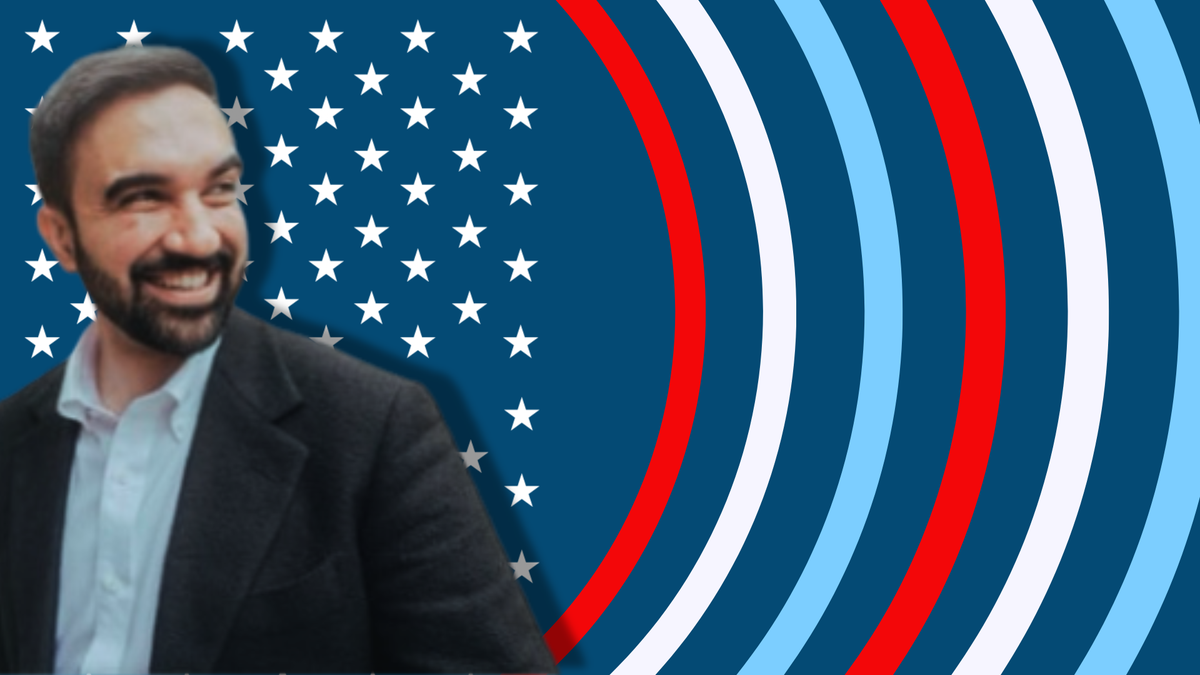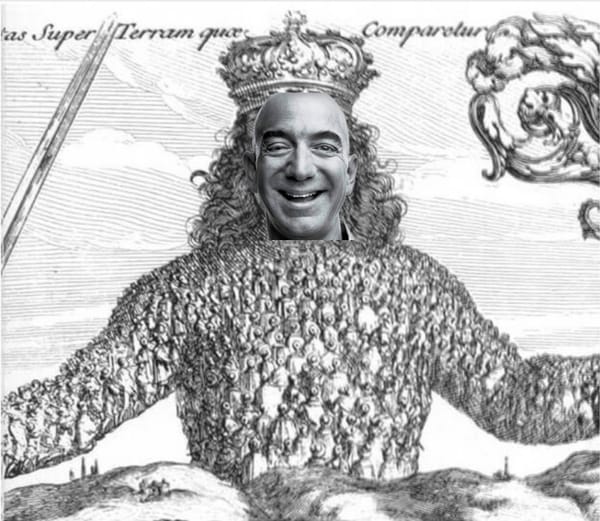Good politics must begin with goodness — Lessons from Zohran Mamdani

I sit here once again working on the Comerado project. It's the morning of June 25, 2025. Last night, a 33-year-old New York state assembly representative named Zohran Mamdani completed a truly stunning upset in the Democratic mayoral primary for New York City, defeating the front runner, former New York governor Andrew Cuomo. He accomplished this over the efforts of some of the most powerful forces in American politics, who circled the wagons around one of the most indisputably odious figures in American politics.
That final point is likely an important one. One I hope certain lagging Democratic Party powerbrokers will take deeply to heart. Falling in and baring teeth against the preferred candidate of voters under 40 [1] while simultaneously wondering aloud why you can’t seem to activate or hold onto those very same voters, all for the sake of the most Trump-coded figure outside the West Wing or Palm Beach, was an undeniably and embarrassingly stupid thing to do. Everyone involved should be ashamed.
Shame. That gets us closer to what I actually want to talk about.
Because while the choices of those encouragingly few, but powerful party stalwarts were doubtless critical to the outcome, the choices made by the Mamdani campaign must be at least as important, and likely far more so. After all, he defeated an entire field of candidates, not just Cuomo. And while Cuomo and his powerful cheerleaders charged headlong into an utterly shameless campaign of vicious and open racism* [2], the Mamdani campaign was built on a very different scaffolding—virtue.
Specifically, democratic virtues. Liberal virtues. The virtues of universal dignity, community, justice, and freedom.
Since it became clear that Mamdani was gaining in the polls, I’ve seen dozens of attempts to diagram the engine driving his success. It’s true that he uses social media well. It’s also true that he ran an elite ground game. It’s doubly true that he blended the traditional Democratic ground game with social media perhaps better than anyone in history.
But let it be said now, and loudly: None of that matters without the virtues.
The virtues guide the conduct of the man. He was unwilling to pretend certain persons are not persons because they happen to exist on the less familiar, less powerful side of a geopolitical conflict on the far side of the planet. He was unwilling to spin his wheels or equivocate on questions about that framed in bad faith. When pressed again and again, he rose to meet that bad faith with humanity and reconnect the conversation to the campaign, its policy positions, and its virtues.
The virtues also guide his policy vision, and he approached them with discipline. The long obsession of Democratic Socialists (of which Mamdani is one) and indeed, many ordinary liberals, is universal healthcare. Universal services in general, actually. A mayor, even of a city like New York, has extremely limited range to address these enormous kinds of policy goals. To his credit, Mamdani campaigned on nothing beyond his scope. He campaigned on freezing rent, making city buses free, and setting up city-run grocery stores to help keep prices low. He aimed squarely at the heart of the average New Yorker’s deepest political concerns—making the city an affordable place to live again—but kept it squarely within the scope of the mayor's power.
These kinds of policies at any scale are good policies. Good because people want them. Good because they do good.
And while he built an undeniably effective campaign, without those policies and the virtues that drive them, no one would’ve cared. There would’ve been no one to tote the rock for his historic ground game. His slick videos would’ve floundered against the rocks of more engaging content on TikTok and Instagram.
This is the critical takeaway from the Mamdani campaign:
Skill and discipline are vital, yes. But in the economy of attention, you’re competing for eyeballs with everything that exists [3]. It’s not enough to be slick and charismatic. You need to connect people’s desire for Good Trouble with their deeply felt material needs. People want a mission; people need to live with dignity. Bring these together and you can make magic.
Virtues and virtuous policies. These create the kind of people we so desperately need as a new era of American politics unfolds around us.
Good soldiers and liberals with ambition.
The received wisdom of Democratic Party politics when I was coming of age was that “you can’t legislate morality.” There was (and is) a persistent suspicion that campaigning on virtues necessarily conceals a parochial campaign on religion; something liberals have long been deeply uncomfortable with, by and large. When Republicans began framing themselves as “values voters” and broadly equating political values with their explicitly Evangelical branding, Democrats ceded ground they didn't even seem to know they needed to contest. This dichotomy has shaped American politics throughout the history of the Sixth Party System.
But that was never a meaningfully true or good faith framing of Republican politics. Cutting the safety net, outlawing women’s healthcare, legalizing discrimination, cynically gutting revenues with ever deeper tax cuts for the wealthy while performatively wailing about the national debt—none of these are the behaviors of a virtuous movement. We know this and have long known it.
The GOP is a movement of two powerful forces: Wealthy business owners and segregationists.
This has been true and has only become more true over the duration of the Sixth Party System. Even where once there were decent individual Republicans in office, they had to tolerate the rest of their hooting, orcish co-partisans. Now, the pretending is over. The White House is an instrument of tyranny, the Republican Congress is its chief enabler, and the conservative Supreme Court increasingly tortures logic, the historical record, and the Constitution itself to make that tyranny backward compatible with the American tradition.
They are partisans of pure, unjustified grievance; the party of wounded privilege and threatened hierarchy. They no longer campaign on virtues because they have none. We do. Rather than continuing to tolerate our own cynical, self-dealing, aggrieved warlords like Andrew Cuomo, we should embrace those virtues with our whole chest. Speak plainly and build policy out of what we truly believe. Campaign in love and honesty. Stand on the good and solid ground of universal human dignity, freedom, and prosperity.
It’s our natural inheritance.
Sources
- https://emersoncollegepolling.com/nyc-2025-poll/
- https://arcmag.org/zohran-mamdani-and-the-making-of-a-muslim-menace/
- https://www.vox.com/the-gray-area/397131/the-gray-area-chris-hayes-attention-economy
*It also bears mentioning by way of addendum that the cynical racism deployed in service of Andrew Cuomo will form and already is forming the basis of what is sure to be a wave of openly racist Republican campaigning the likes of which we may not have seen in a generation.



